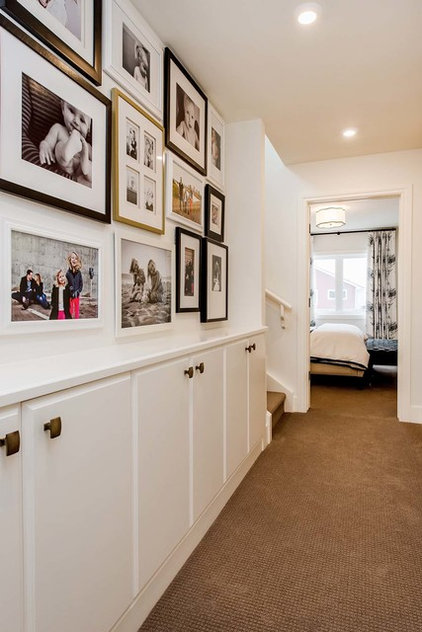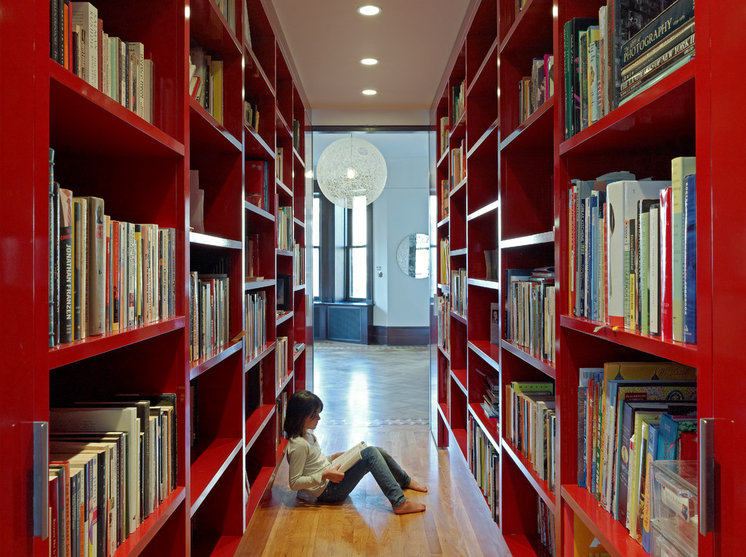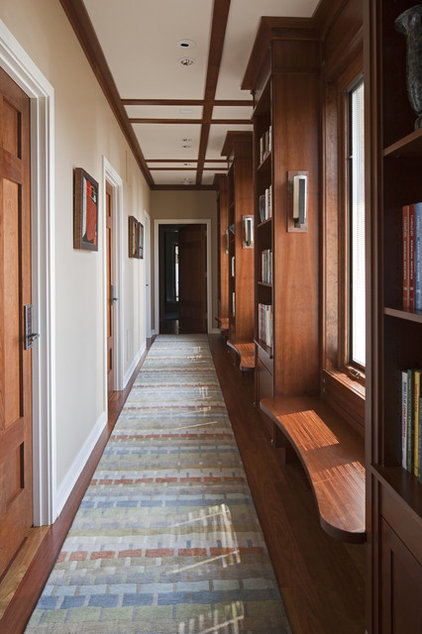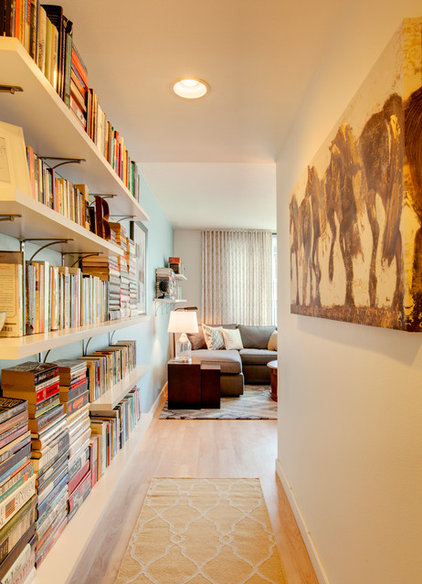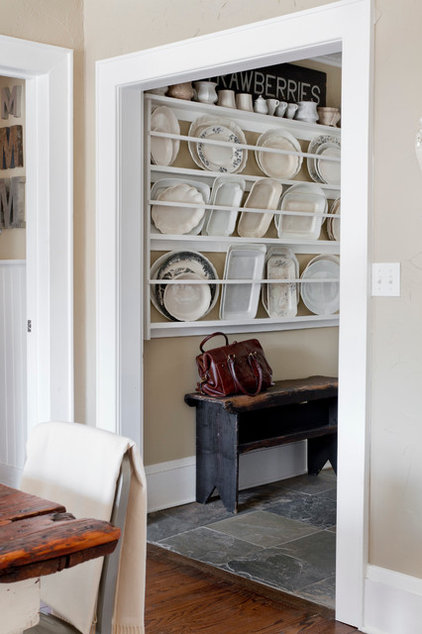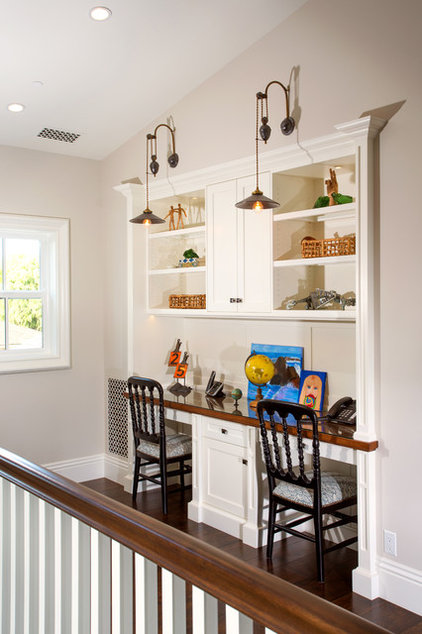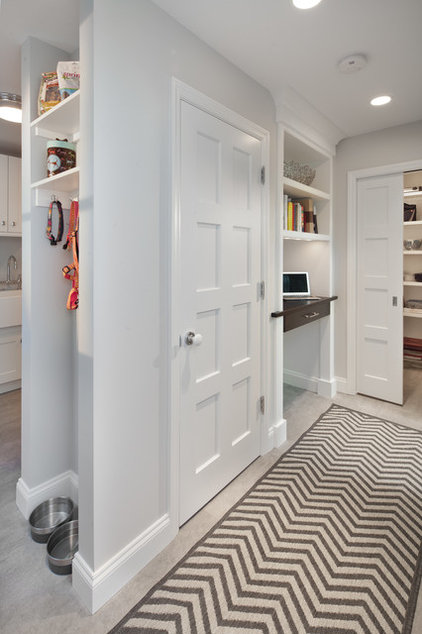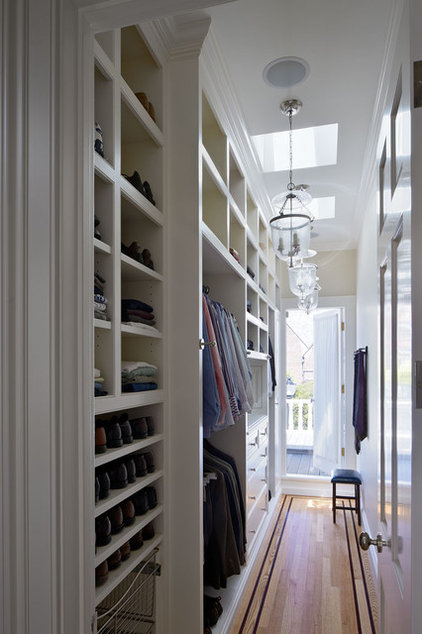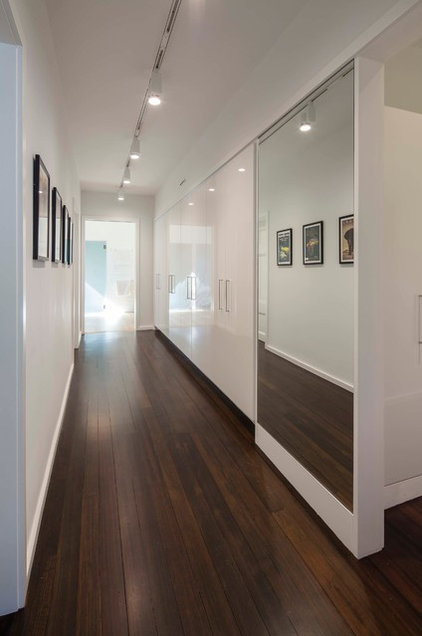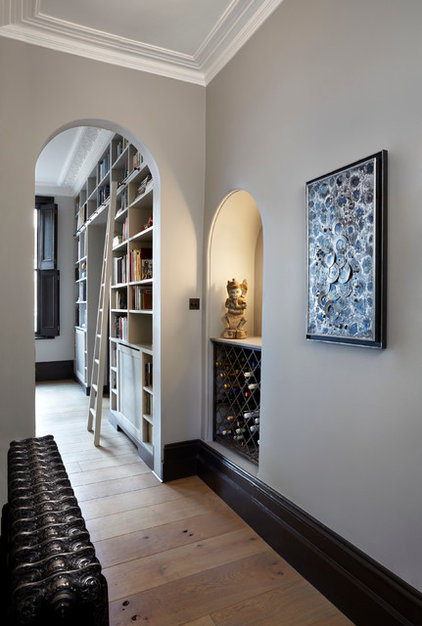Hardworking space: The hallway
The challenge: Hallways connect rooms but often lack a dedicated function of their own. In a hardworking home, every inch of space counts. Make sure your hall does its part by incorporating smart storage features that fit your home and your budget.
Good to know: When weighing options for modifying your hallway, keep in mind that it’s important not to shrink your hallway to less than 36 inches wide, for accessibility and comfort.
Why: Add storage with slim cabinets without building into the wall. Unlike ceiling-height storage, wall-mounted cabinets allow room to hang artwork on the wall above and allow a bit more breathing space in a narrow passageway.
How: Off-the-shelf versions can be purchased from local home improvement stores or Ikea, for DIY or pro installation. For tricky spaces or to achieve a specific look, hire a cabinetmaker to design and install custom units.
Cost: Prefabricated cabinets for DIY installation can cost $200 to $500 and up. You can expect to hire a handyperson for two to four hours of work for a small to medium-size hall, at a rate of $30 to $125 per hour, depending on rates in your region and the person’s experience and qualifications. Custom cabinetry can cost $400 and up per linear foot, including installation.
DIY tip: Before purchasing cabinets, carefully measure your space, taking into account the door swing needed for the cabinets to open.
Why: Siting a book collection in the hall makes for great storage possibilities and easy perusing. From simple ready-made shelves to a custom design solution, bookshelves are one of the most versatile yet straightforward hallway upgrades.
How: For a custom built-in like the one shown here, hire a carpenter or cabinetry professional to craft bookcases that fit your hall (and your book collection) exactly.
Cost: Custom bookcases for a hall can cost $2,000 to $4,000 and more, depending on the size of your hall, local rates and the choice of materials.
How: Use a stud finder to locate the wall studs and mark them with a pencil. Using a level and pencil, mark where you want each shelf to be before you begin. Try to attach at least one shelf support on each shelf to a stud— if you can’t get fasteners into a stud, get appropriate anchors for your wall type (ask at a hardware store).
Cost: Floating or bracket shelves can cost as little as $5 apiece and up to $100 or more, depending on the size and material. For a semi-DIY option, you can purchase the shelves and then hire a handyperson to install them, at a rate of $30 to $125 per hour. An experienced pro should be able to install a simple set of shelves in about an hour.
Why: A wall-mounted plate rack can provide overflow storage for dishes and platters, and can take the place of wall art.
How: Plate racks can be purchased ready made or built from scratch by a carpenter or handyperson. If you’re installing plate racks yourself, locate a wall stud and attach the plate rack to a stud in at least one place if possible. If you cannot attach it to a stud, ask a staffer at a local hardware store to advise you about the best anchor for your walls.
Cost: Plate racks cost from $50 to $200 and up. Expect to pay a carpenter from $250 to $400 and up to design and construct a custom plate rack for your hall.
How: You may not be able to add a recessed desk to a typical hall wall, unless the wall already contains a closet, in which case there could be some hidden space there. Have a contractor take a look to find out what your options are. If your hall is wide enough, you may still be able to add a built-in desk, even if it can’t be fully recessed.
Cost: The cost of adding a hallway workspace is similar to that for custom bookcases — from $1,200 to $4,000 and up, depending on the size of your hall, local rates and the choice of materials.
Why: Whether you have limited bedroom closet space or have a large collection of clothes or shoes overflowing from your regular closets, customizing a hallway to accommodate wardrobe needs can be a big help.
How: Depending on the size of your hallway and your storage needs, the clothes storage zone can be as simple as a few valet rods or as complex as a fully custom storage system. If you will be outfitting the space yourself, look for components that look good on display.
Cost: Individual closet components for DIY installation can cost between $50 and $300 per piece. Custom storage varies in cost depending on the materials used and the pro’s experience and location, but can run $1,200 to $5,000 or more.
How: Install a wine rack in an existing hall niche to house a growing collection of bottles, or have a new niche made specifically for the purpose. If you’re using an existing niche, measure carefully. Depending on the dimensions of your niche, you may be able to use ready-made wine racks; otherwise hire a carpenter or handyperson to craft a wine rack to fit your space.
Cost: Ready-made wine racks can be purchased for $20 to $100 and up per piece. If you need to have a new niche created, expect to pay a carpenter $300 to $500 and up.
